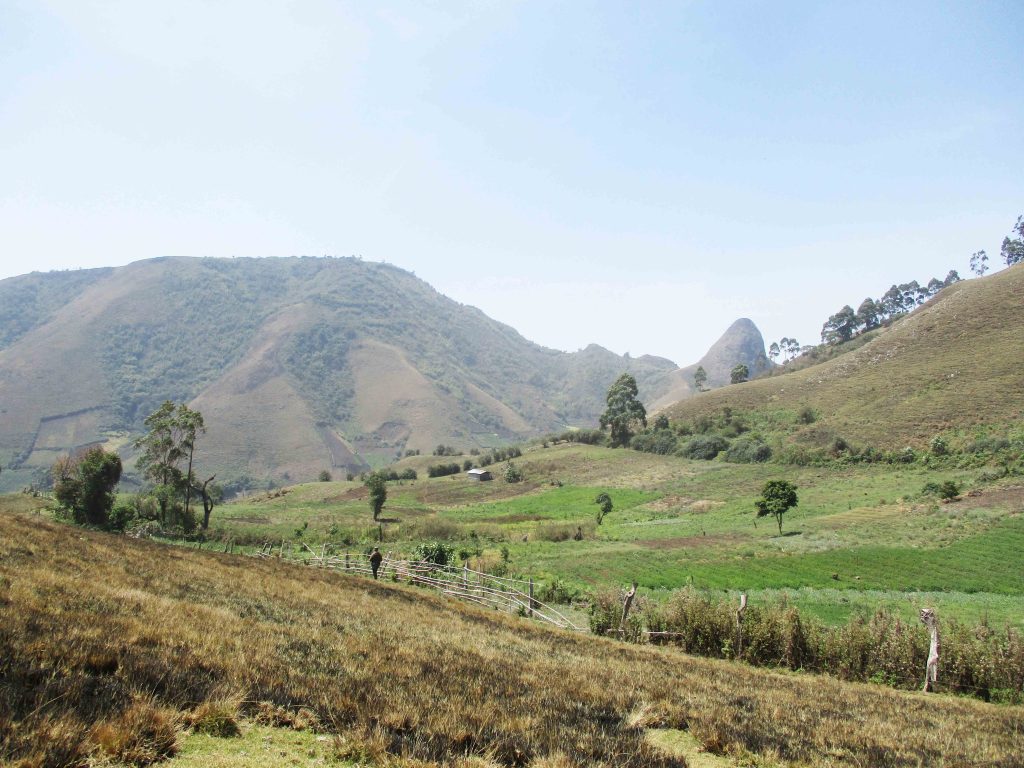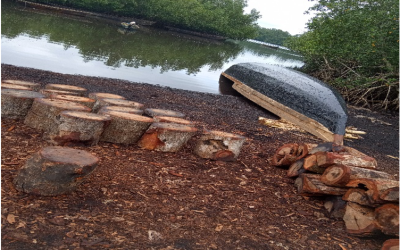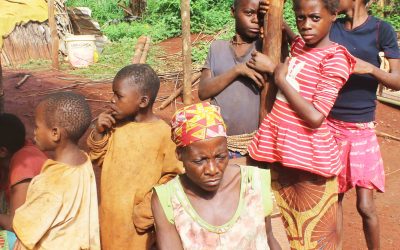Deforestation and forest degradation are the biggest threats to forests worldwide as most of the world’s forests are gradually vanishing into thin air. Deforestation occurswhen forests are converted to non-forest uses, such as agriculture and road construction and forest degradation occurs when forest ecosystems lose their capacity to provide important goods and services to people and nature. Today, most forested areas are being converted to non-forest land use such as arable land, urban use, logged area or wasteland. Combatting deforestation and degradation have undoubtedly been a daunting task to most national and international organizations.
The world’s forests absorb 2.4 billion tons of carbon dioxide (CO2) per year, one-third of the annual CO2 released from burning fossil fuels. Forest destruction emits further carbon into the atmosphere, with 4.3–5.5 GtCO2eq/yr. generated annually largely from deforestation and forest degradation.
Over half of the tropical forests worldwide have been destroyed since the 1960s, and every second, more than one hectare of tropical forests is destroyed or drastically degraded. This intense and devastating pressure on forests is not limited to the tropics – an estimated 3.7 million hectares of Europe’s forests are damaged by livestock, insects, diseases, forest fires, and other human-linked activities. Some of these activities including; expanding agriculture, due to an increased population and shifts in diet, are responsible for most of the world’s deforestation. As the human population continues to grow, there is an obvious need for more food, logging, construction, bushfires, etc.
However, forest loss is both a cause and an effect of our changing climate. Climate change can damage forests, for instance by drying out tropical rainforests and increasing fire damage in boreal forests. Inside forests, climate change is already harming biodiversity, a threat that is likely to increase.
Deforestation is very alarming as its detrimental both to our lives and our planet. Trees play a key role in the local water cycle by helping to keep a balance between the water on land and water in the atmosphere. But when deforestation or degradation occurs, that balance can be thrown off, resulting in changes in precipitation and river flow as watersheds that once supplied communities with their drinking water and farms with irrigation water, have become subject to extreme fluctuations in water flow. The loss of safe, potable water puts communities’ health at risk for a variety of communicable diseases.
Fortunately, this so-called degradation can be remedied by us, if we are committed and determined. This can be done through actions like: Countries and other land owners are committing to FLR (Forest Land Restoration) through the Bonn Challenge – a global effort to restore 350 million hectares of degraded landcapes by 2030, launched by IUCN and Germany in 2011. The Bonn Challenge has so far generated pledges from governments and organizations to restore over 210 million hectares. In line with this, Cameroon is committed to restoring 12 million hectares of degraded landscapes by 2030. Improving the health of these forest ecosystems and introducing sustainable management practices increases the resilience of human and natural systems to the impacts of climate change. However, in case of already damaged ecosystems, ecosystem restoration is the ideal solution, it’s for the people and for our planet.
Environment and Rural Development Foundation (ERuDeF) has been working to protect forests for more than 20 years. ERuDeF works with governments, companies, communities and other stakeholders to promote certification for responsible forest management practices, combat illegal logging, reform trade policies, protect forested areas, and more. In this light, our main priority is ecosystem restoration where we have a vision of planting 300 million trees on 3 million hectares of degraded land in 15 years. This will be done across several Mountainous landscapes in Cameroon and the Central African sub-region. In 2018, we launched the Mt Bamboutos Initiative with a vision of planting 15 million trees on 35000 ha of degraded land impacting 30000 lives. As we continue with our efforts in restoring the Mount Bamboutos we are hopeful that with your support we are going to halt the phenomenon land degradation and massive deforestatio1an intact forest



